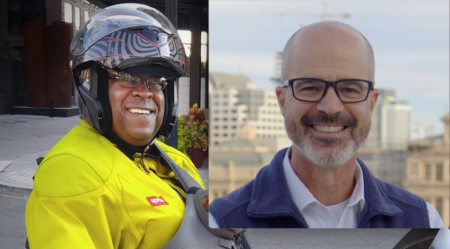The World Economic Forum (WEF), in partnership with professional services consultancy Deloitte, will collaborate with the cities of Detroit and Ann Arbor in Michigan in the USA, and with Windsor in Ontario, Canada, to pilot seamless integrated mobility systems in the region.
Following a call for applications in April this year, the three cities were selected as the primary partner out of 13 applicants from 10 countries across the globe to participate in a year-long engagement.
To support the innovation led by the SIMSystem partner geography, the forum will build a community of public- and private-sector leaders to interact and exchange leading practices via a digital collaboration tool and a series of workshops. The pilot, part of the WEF’s ‘SIMSystem: Designing Seamless Integrated Mobility’ project, is the continuation of a year-long dialog between leading private- and public-sector partners.
In January, the project launched the ‘SIMSystem Manifesto’, which proposes 10 principles for public-private collaboration, and also examines how mobility providers and their regulators can integrate multiple transport modes into a seamless integrated mobility system (SIMSystem) that will connect city buses, rideshares, and connected autonomous vehicles (CAVs) to enhance the overall efficiency of the transport network and enable faster, safer, cleaner and more affordable mobility of people and goods.
Throughout 2018, the geographies will collaborate to address significant mobility challenges such as the lack of connectivity between transportation modes, increased congestion, and evolving mobility needs of underserved populations. Some residents are without reliable transportation to jobs or are unable to take advantage of new mobility options due to a lack of access to reliable internet.
As the cities of Detroit, Ann Arbor and Windsor build regional cohesion to tackle their mobility opportunities, the forum will provide support through several design workshops that will connect the cities to the SIMSystem Working Group.
The group comprises senior executives from diverse industries, such as automotive, supply chain, mobility-on-demand (MoD) and technology, as well as academics and government officials. Insights from the trials will be documented throughout the year and shared publicly, so all cities worldwide can learn from the experiences of the pilot region and apply practices to their own municipality.




